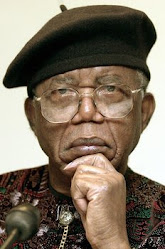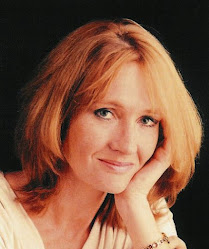After I ripped off the UPS packaging, the first thing I noticed about
Americanah was the cover art by its American publisher, Knopf. My first thought was "
What is this?" If you grew up in Nigeria you can remember how we would wrap our textbooks in old calendar pages so that the cover would remain as good as new no matter how long the book was used or how badly the book was handled. Sometimes when there were no old calendars we used brown paper that came in sheets. You would cut a piece large enough to hide the entire book cover and leave a little extra brown paper to fold and tape to the inside of the book cover. Then we would write the name of the book on the brown paper with a black marker pen. That's my impression of the cover of the American edition of
Americanah (pictured). A brown paper book cover that is simply a jacket for my hardcover copy. A brown paper book cover that is grossly unimaginative and underwhelming.
Farafina, Adichie's Nigerian publisher, has a much better cover in comparison. I'm done judging
Americanah by its cover. Let's proceed.
Americanah is centered around our protagonist, Ifemelu, and her love interest Obinze. For her luck in scoring a visa, a much prized ticket out of the heat and dysfunction of Nigeria, to the United States of America, Ifemelu's friends tease her about becoming an "Americanah". She gets to America and is disappointed by what she finds. Suddenly she is conscious of the color of her skin. Conscious of being "black", a thing that never crossed her mind in Nigeria. She experiences culture shock but there is no time to stand around acting bewildered. There's school to attend, she has bills to pay, and most importantly she needs to find a job. Somewhere along the line she discontinues communication with Obinze, and begins dating other guys. She dates Curt first. He's white, and way out of her league but he adores her. He's a godsend to her in a lot of ways but she wrecks their relationship. Concerning her relationship with Curt, she tells her friend Ginika, "There was a feeling I wanted to feel that I did not feel." Along comes Blaine. He's black, and well educated, a professor at Yale. He has his flaws but he loves her. Their relationship lasts a while before it hits the rocks. After thirteen years in America, she packs her bags and heads home, abandoning her profitable blog, and all the comforts of the western world. Back in Lagos Obinze is married to a beautiful wife and they have a little daughter, Buchi. He makes really good money and life is comfortable but he's not happy. They are both dissatisfied with what they have, and they gravitate towards each other to find that thing they can't find elsewhere.
One of the reasons I love this book is because I was able to relate to it. As a Nigerian who has lived in America for quite a while all of this is familiar. There were moments when I nodded in agreement to the many truths about living abroad, other times I shook my head knowingly, other times I laughed out loud. Adichie knows.
Americanah is a huge lot more memorable than Adichie's third book
The Thing Around Your Neck but it does not trump
Purple Hibiscus, neither does it come close to the glory of
Half Of A Yellow Sun (You can find my thoughts on
Purple Hibiscus and
Half Of A Yellow Sun here and
here). I could quote
Americanah all day:
"
Ifemelu wished the dog were kept outside, which was where dogs belonged."
"
...they did not say 'Sorry'. They said "Are you okay?' when it was obvious that you were not. And when you said 'Sorry' to them when they choked or tripped or encountered misfortune, they replied, eyes wide with surprise, 'Oh, it's not your fault'."
"
To be given money in the Nigerian manner was to have it pushed into your hands, fists closed, eyes averted from yours, your effusive thanks - it had to be effusive - waved away, and you certainly did not count the money, sometimes did not even look at it until you were alone."
"
She might have never visited her father's country, but he was convinced at that moment of her Africanness; how else would she be able to fling herself to the ground with that perfect dramatic flourish?"
"
...she felt suddenly, guiltily grateful that she had a blue American passport in her bag. It shielded her from choicelessness."
"
That girl never understood the first rule of life in this Lagos. You do not marry the man you love. You marry the man who can best maintain you."
I must admit that by page 90 I began thinking this was just a love story. Later on I realized it's also about race. Ifemelu's blog, "
Raceteenth or Various Observations About American Blacks (Those Formerly Known as Negroes) by a Non-American Black", is smart. Adichie's observation of the racial dynamics in America is eagle-eyed, and unvarnished. A while ago she noted that she was reading mostly British books during her childhood, and it wasn't until Achebe's work that she realized that people like her could exist in literature. All four of her books show that she has given back in the same way Achebe gave to her. We see ourselves in her works of literature. We see people we can identify with, persons whose concerns and worries are relatable. Characters whose ways of thinking we understand because they are
our ways of thinking. Adichie is smart. Her prose is beautiful. It's like the late Chinua Achebe said, "Adichie came almost fully made".
-----
I visited Chimamanda Adichie & Chinua Achebe's old house on the University of Nigeria, Nsukka campus! Read my post HERE!
[Image via Goodreads]

























